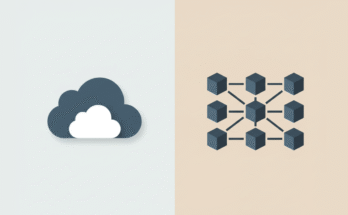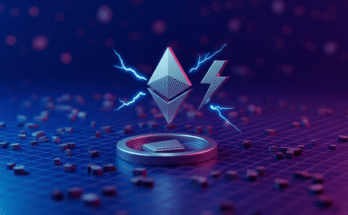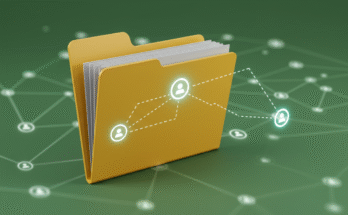In an increasingly digital world, our identities are more than just names and faces. They’re a complex web of data points email addresses, phone numbers, social media profiles, bank accounts, medical records, and more. All stored in various centralized systems. But what if there was a better way to manage our identities, one that puts control back in our hands? Enter decentralized identity.
If you’ve been hearing this term pop up in conversations about blockchain, privacy, or digital transformation, you’re not alone. Decentralized identity is gaining traction as a revolutionary shift in how we manage and protect personal information online. So, let’s break it down, what is decentralized identity, and why does it matter?
![[Decentralized Identity] What It Is and Why It Matters](https://mineatech.com/wp-content/uploads/2025/06/decentralized-identity-what-it-is-and-why-it-matters-1024x640.png)
What Is Decentralized Identity?
At its core, decentralized identity is a way for individuals to own and control their digital identities without relying on centralized authorities like governments, corporations, or social media platforms. Instead of having your personal data stored on servers owned by Facebook, Google, or your bank, decentralized identity uses blockchain technology and cryptographic keys to give you full ownership of your information.
Think of it as a digital passport that only you hold. You decide who gets access to your data and for how long, and you can revoke access anytime. No middleman is needed. This concept is often tied to Self-Sovereign Identity (SSI), which emphasizes user autonomy over personal data.
How Does It Work?
→ While the technical side of decentralized identity can get complex, here’s a simplified version:
- Decentralized Identifiers (DIDs): These are unique digital IDs stored on a blockchain or distributed ledger. Unlike centralized IDs (like your Facebook username), DIDs are not tied to any specific platform or authority.
- Verifiable Credentials: These are tamper-proof digital certificates that prove certain aspects of your identity. For example, a university could issue you a verifiable credential confirming your degree, which you can then share with employers without the university getting involved every time.
- Wallets: Just like cryptocurrency wallets store your Bitcoin or Ethereum, identity wallets store your DIDs and verifiable credentials. You use these wallets to manage access to your data securely.
By combining these elements, decentralized identity creates a system where you are the sole gatekeeper of your personal information.
Why Does Decentralized Identity Matter?
→ Now that we’ve covered the basics, let’s dive into why this concept is so important and frankly, exciting!
1. Enhanced Privacy
In traditional systems, your data is stored on centralized servers that are vulnerable to hacks and breaches. Think about all the times major companies have suffered data leaks, those incidents exposed millions of people’s sensitive information. With decentralized identity, your data isn’t stored in one central location. Instead, it’s encrypted and distributed across a blockchain. This makes it significantly harder for hackers to access your information.
2. Greater Control
Have you ever felt uneasy about how much of your life is controlled by big tech companies? With decentralized identity, you get to decide who can access your data and for what purpose. No more worrying about platforms selling your information to advertisers or using it in ways you didn’t consent to.
3. Improved Security
Because decentralized identity relies on cryptographic keys and distributed ledgers, it offers robust security features that traditional systems simply can’t match. Your identity becomes less susceptible to fraud, impersonation, or unauthorized access.
4. Cross-Platform Usability
One of the coolest aspects of decentralized identity is its universality. You don’t need separate accounts for every website or service you use. Instead, you can use your DID across multiple platforms without creating new accounts or remembering countless passwords.
5. Empowering the Underserved
Decentralized identity has the potential to transform lives for people who lack access to traditional forms of identification like refugees or individuals in developing countries. With a blockchain-based ID system, they can prove their identities and access services without relying on government-issued documents they may not have.
Real-World Applications
→ Decentralized identity isn’t just a theoretical concept. It’s already being implemented in various industries:
1. Healthcare
Imagine being able to share your medical history with a new doctor without filling out endless forms or worrying about privacy breaches. Decentralized identity can streamline healthcare processes while keeping sensitive data secure.
2. Finance
Banks and financial institutions can use decentralized identity to verify customers without storing massive amounts of personal data on vulnerable servers. This could reduce fraud and speed up processes like loan approvals or account creation.
3. Education
Universities can issue digital diplomas as verifiable credentials, making it easy for graduates to prove their qualifications to employers, no need for paper copies or lengthy verification processes.
4. Travel
Decentralized identity could simplify border control and visa processes by providing travelers with secure digital passports that are universally recognized and easy to verify.
Challenges and Considerations
→ Of course, no technology is without its hurdles, and decentralized identity is no exception:
- Adoption: For decentralized identity to succeed, governments, businesses, and individuals need to embrace it a task that requires significant education and infrastructure changes.
- Regulation: Navigating legal frameworks around privacy and data ownership will be crucial as this technology evolves.
- Accessibility: Ensuring that decentralized identity systems are easy to use for everyone, regardless of technical expertise, will be essential for widespread adoption.
The Future of Identity
While decentralized identity is still in its early stages, its potential is enormous. As we move toward a more interconnected world, the ability to control our own data will become increasingly vital, not just for convenience but for security, privacy, and empowerment.
So the next time you hear someone mention decentralized identity, think about how it could reshape the way we interact with technology and each other for the better. It’s not just about improving systems. It’s about redefining trust in the digital age.



